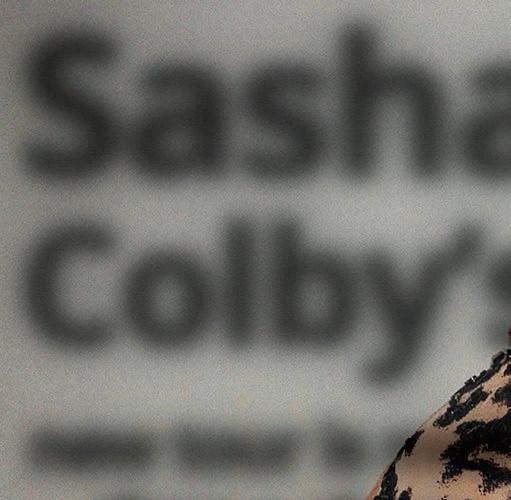





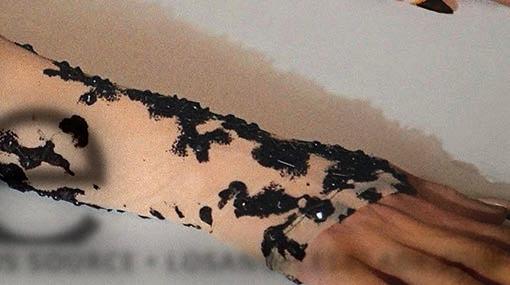












became the first
in Culver City at 19 years old, making history—twice!
At 19, Ezidore felt like it was his responsibility to track the educational movements in the Culver City Unified a bit more closely
By GISSELLE PALOMERA
While most teenagers are busy playing video games, Triston Ezidore was busy making history.
From high school student to school board member for the Board of Education in Culver City, Ezidore talks with the LA Blade about his unconventional entry into politics with influence from George Floyd’s death and the COVID-19 pandemic, and how he made history twice while he was still a teenager.
In 2021, most of us were still at home and many people unemployed, out of school, caring for loved ones or just merely surviving the pandemic shutdowns and peak infections caused by COVID-19. During this time, many high school students lost valuable time in the classroom, being cut off from celebrating and socializing with their peers. Young Ezidore, rose above that—and more—achieving new milestones within his family and within the entire board of education in Culver City, bringing representation to queer, trans and communities of color.
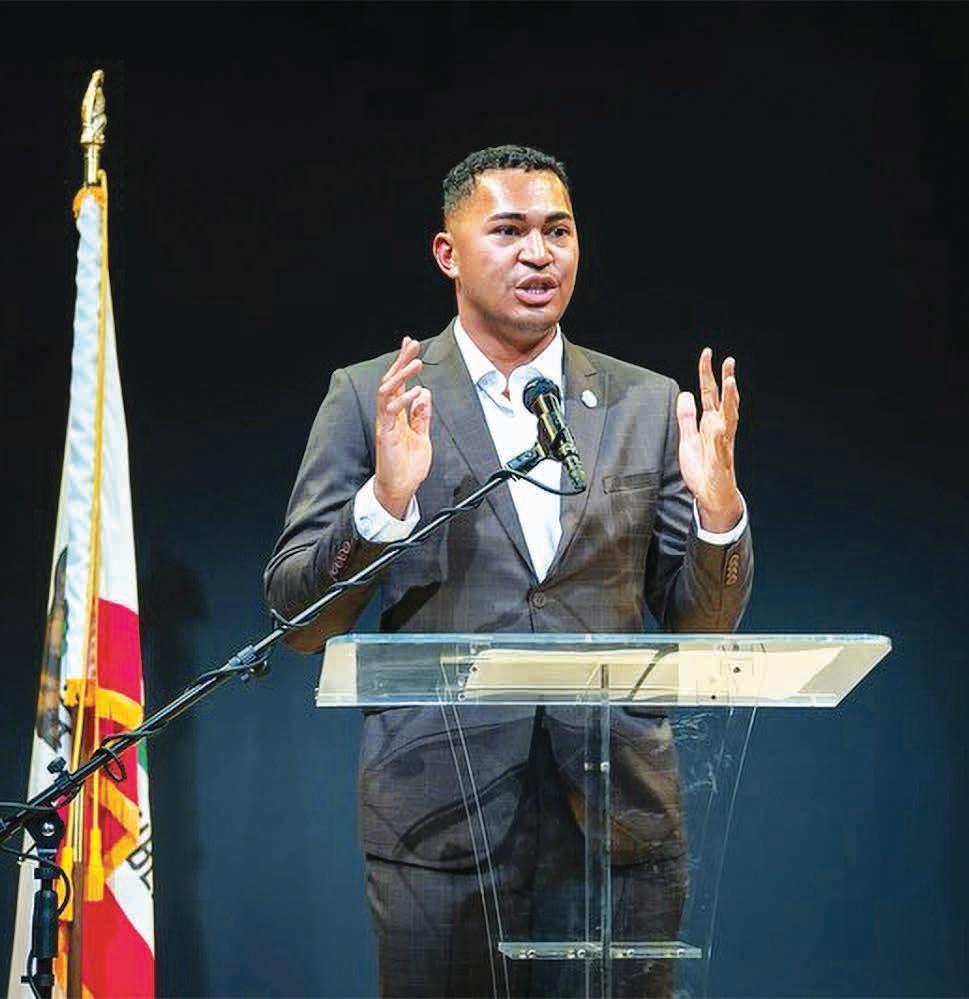
Shortly after graduation, Ezidore headed to Syracuse University and from afar, he continued to tune into the Culver City school board meetings to track the progress he had made during his time as student body president in high s chool.
“I was still kind of watching, tuning into everything that was going on in Culver City and we knew that in order to get [the progress] right, we had to have a spotlight over the implementation,” said Ezidore.
It was during this time, that he noticed that all the progress he tried to implement during his time there, was not being implemented correctly, so he felt like it was his responsibility to track the movements a little more closely.
This is when he made the decision to return home and enroll at University of Southern California’s Dornsife College of Letters, Arts and Sciences—where he simultaneously launched his campaign for a seat on the Culver City Unified School District Board of Education.
In 2022—just one year after graduating high school—he won one of three open seats, becoming the youngest elected official in Los Angeles County at 19 years old. Then in 2023, he was elected to serve as School Board Vice President—making history as the first Black, gay man in that position as a teenager
Though his journey into politics is “unconventional” as he puts it, Ezidore says he was radicalized to go into politics because of George Floyd’s death and the inequities made incredibly obvious by the COVID-19 pandemic.
Ezidore says that being the child of immigrants also inspired him to ultimately look into politics to gain a better understanding of how his perspective can be helpful towards other people’s experiences and educational goals.
His mother was born in Vietnam and moved to the United States after the fall of Saigon, which was the end of the Vietnam war that lasted from 1955 to 1975. Ezidore’s father is from Jamaica, so that gives Ezidore a unique perspective into the challenges and unique obstacles that many students face during their K-12 education.
Ezidore also identifies as gay and has been out since he was 18 years old.
“I find myself identifying as a gay, Black man, and I know that under this administration specifically, there has been an obsession with LGBTQ people and trans people in education,” said Ezidore. “I think historically our [education] system has not supported Black boys in education as a whole, so I find myself often pulling or tapping into those aspects of my identity.”
As a proud, gay, Black man, he felt that it was necessary to implement actual structures to support the most neglected demographic of the educatio n system.
“We instituted the Black Student Achievement Plan that called for specific action goals to implement or to increase achievement,” said Ezidore.
This plan created mentorship and internship opportunities, a Black student council, a Black affinity group graduation and uplifted students in achieving their goals. During that time, former governor Jerry Brown stated that school districts should implement a Local Control and Accountability Plan (LACP). The plan serves as a tool to improve student outcomes with a roadmap that tracks and sets goals and plan actions, and leverages resources to guide students who were foster youth, low-income and English-learners.
“ I don ’ t know that [Trump] is going to withhold the funding, but to me, I don ’ t know if I could sleep at night if I let him dictate these [educational] outcomes for the students in Culver City,” he said.
The latest update from the Supreme Court is that Trump is allowed to continue dismantling the U.S. Department of Education, worrying scholars throughout the country, with many saying that without an injunction, much of the damage can be irreversible. The Department of Education has already experienced the slashing of over 1,400 jobs and will continue to see more funding cuts due to the Reduction in Force (RIF) plan, implementing Trump ’ s Executive Order, which he claims will improve education and families by returning education authority to individual states.


West Hollywood is working to update local ordinances to include non-nuclear, polyamorous, and chosen families
By ROSE MONTOYA
West Hollywood is once again at the forefront of LGBTQ+ equality and family inclusivity. The city, known for its progressive leadership, is working to update local ordinances to better refl ect the full spectrum of modern family structures, including non-nuclear, polyamorous, and chosen families.
Christina Fialho, an attorney and founder of Rewrite the BiLine , has been a driving force behind the eff ort. Fialho has spent nearly two decades advocating for LGBTQ+ and immigrant rights. For her, this fi ght is deeply personal. “ West Hollywood is my community, where I go to the gym, where I go out with friends, and as a bi queer person, I am grateful each day to be part of such a welcoming community,” Fialho shared.
“ For polyamorous individuals and people in diverse family structures,” Fialho said, “ the fear of discrimination and lack of legal protections make coming out incredibly diffi cult. That ’ s why I have mobilized community support by meeting one-on-one with community members to listen, connect, and build trust. Despite the fear, there s a powerful, shared desire for change, and it ’s that collective courage that has made this work possible so far.”
The push gained momentum after the passage of Proposition 3 in California last year, which removed discriminatory language from the state constitution and reaffi rmed same-sex marriage protections. Fialho reached out to West Hollywood Mayor Chelsea Lee Byers in March 2025 to explore how the city could further protect diverse families. Within two months, Mayor Byers introduced an agenda item to initiate the process of expanding the city ’s nondiscrimination protections.
“ For so many queer individuals, chosen family is a source of safety, stability, and joy,” Mayor Byers shared. “ As a city that has long championed LGBTQ+ rights, it ’s essential that we enact the legal protections necessary for all families to live in dignity and security. This nondiscrimination ordinance and the domestic partnership law will enhance the well-being of people and families across West Hollywood, and I m proud that our city continues to lead with our values of inclusion, diversity, and equality for all.”
On May 19, 2025, the West Hollywood City Council unanimously voted to explore updates to the municipal code that would prohibit discrimination based on family and relationship structure. These updates would explicitly protect people in polyamorous relationships, multi-parent families, step-families, multi-generational households, and asexual partnerships. These types of ordinances, which have been adopted by a few other cities, “ are already reducing stigma and advancing equity in real and measurable ways,” Fialho wrote in her May 19th comment letter.
On June 23, the City Council took another historic step. Vice Mayor John Heilman introduced an agenda item to explore updating the city ’s domestic partnership ordinance to allow more than two people to register as domestic partners, potentially making West Hollywood the fi rst city in California to offi cially recognize multi-partner relationships. When introducing the agenda item, Heilman explained that he wants to address the needs of people in diverse family structures “and provide whatever protection we can for them as a family and for their children.” Heilman also led the city s groundbreaking eff ort in 1985 to create the nation ’ s fi rst domestic partnership registry for same-sex couples.
This growing movement has been powered by the voices of West Hollywood residents, local leaders, and LGBTQ+ advocates who have rallied in support of the ordinance. Many emphasized that recognizing diverse family structures is not just a policy update, it ’ s a necessary step toward dignity and equity for all.
Brian Wenke, who runs a global LGBTQ+ nonprofi t, stressed the urgency of modernizing family protections, sharing that “ our laws must evolve to refl ect the full spectrum of how love and family show up in the world.” Nicole Kristal, founder of Still Bisexual , highlighted the specifi c impact on bi+ people, many of whom are left “ without the protections, benefi ts, or dignity aff orded to others.” For Kristal, this is about more than just policy; it ’ s about fi nally “ addressing the needs of people who have been his-
torically sidelined even within queer spaces.” Educator and advocate Ross Victory also underscored the importance of protecting chosen families, especially now, saying, “ family, chosen or blood, is more important than ever in these times.”
As a polyamorous, trans woman and West Hollywood community member, I also spoke in support of the ordinance. For me, this is personal. “ Domestic partnership recognition isn ’ t just symbolic; it ’ s a step toward legal inclusion, protection, and dignity,” I shared. In a time of growing backlash against LGBTQ+ rights, I believe that “taking bold action to support marginalized communities isn ’ t just the right thing to do, it ’ s the necessary thing to do.”

This local movement is part of a growing national eff ort to redefi ne what family means under the law. Across the country, more than a dozen states have expanded paid family leave to include chosen family and “designated persons,” and California now allows caregiving beyond the traditional nuclear family. If this ordinance passes, West Hollywood will become the fi rst city in California and the fi rst on the West Coast to offi cially recognize domestic partnerships that include triads, polycules, and other multi-partner relationships, joining municipalities like Somerville, Cambridge, and Arlington, Massachusetts.
“ What we do here in West Hollywood has a direct eff ect on the state and national conversation,” Fialho emphasized. “ While West Hollywood cannot end discrimination against queer families on its own, it can lead the way.” Fialho hopes this progress will inspire other cities across Los Angeles County and beyond to follow. “The binary lens through which society views gender, sexuality, and relationships denies the reality of millions. Poly families disproportionately include bi+, trans, and nonbinary individuals, communities that already experience discrimination and legal invisibility. Unequal access to rights and benefi ts was a primary catalyst for the marriage equality movement, and it should motivate Californians to extend benefi ts to all families.”
The City Attorney has now been directed to evaluate amending local ordinance language, and the next vote is expected soon. Community members can stay engaged and show support by joining the local coalition here. All eyes will be on West Hollywood as it continues to push the boundaries of family recognition in an upcoming City Council meeting.

When TS Madison cut the ribbon on her Starter House in Atlanta this past Transgender Day of Visibility, she wasn’t just opening a home, she was building a legacy
By ROSE MONTOYA
When TS Madison cut the ribbon on her Starter House in Atlanta this past Transgender Day of Visibility, she wasn’t just opening a home, she was building a legacy.

Launched on March 31, 2025, the TS Madison Starter House is a re-entry home for formerly incarcerated Black, trans women. The Atlanta-based initiative provides safe, affirming housing for up to five residents at a time who participate in a 90-day program offering job assistance, healthcare, economic opportunities, and holistic support.
Madison shared that the idea grew out of a desire to do more than speak out online. “While getting ready to film The TS Madison Experience season 2, I was talking with my team about what more I could do for my community. I used to feel like everyone else was out marching and
being so active, and I was just online talking. But then I started noticing how every time I’d speak out, blogs and media outlets would pick it up… and I realized, wow—I don’t necessarily have to be out in the streets to make change happen. Still, I wanted to do more than just talk.”
That commitment to action led her to turn a personal real estate purchase into a lifeline for her community. “I said, ‘I’m buying a new house… I have this house, can I give the girls housing?’ Because the girls need housing. I remember moving to Atlanta broke and being homeless. I’ve been a house mother—my gay kids have lived with me and thrived. So why not keep doing that? Why not make that intentional?”
The Starter House is powered in part by a partnership with wellness brand Pure for Men and longtime advocacy organization NAESM. As part of its Pride initiatives, Pure for Men donated a portion of June sales to support the house and sponsored attendance for participants at NAESM’s National Leadership Conference on Health Disparities and Social Justice, which took place in Los Angeles from June
25–29.
“We’ve chosen to support the TS Madison Starter House and NAESM because they’re making a real difference in people’s lives,” said Lawrence Johnson, co-founder and CEO of Pure for Men. “With Black trans lives and rights under attack, these organizations are stepping up to amplify their voices, fund essential care and give them the tools to succeed.”
For Madison, the collaboration is rooted in genuine connection. “NAESM is a godsend. It’s a 35-year-old organization with a solid reputation. No scandals. They’re trusted,” she said. “Then there’s Lawrence, the President and CEO of Pure for Men. I had already been using their products before we ever met! We met at a party, just vibing, and it turns out we were already interconnected. We started talking and they shared how they’d been watching me grow and loving my show Phag Talk. And the partnership just blossomed from there.”
The initiative arrives amid rising anti-trans and anti-Black violence, but TS Madison views the Starter House as a political act rooted in love and care. “As a Black,, trans person, I’ve al-
ways felt left out by my own Black community. It’s like, once you’re gay or trans, they see you as ‘other.’ Suddenly your Blackness doesn’t count anymore. But I can’t separate the two—I’m Black and trans. I’m both, all the time.”
She added: “When you throw your Black trans child or sibling out, that’s anti-Blackness to me. Because you’re dehumanizing them. My humanity shouldn’t vanish just because I’m trans.”
This work feels both necessary and deeply personal. “I stand on the shoulders of girls who laid down or lost their lives,” Madison said. “And I’m honored to lend my back and shoulders for others to stand on. That’s how we climb—by lifting each other.”
Madison’s message to her younger self is one of strength and perseverance: “I’d tell her: Stay the course. It’s rocky. It’s going to get even more rocky. But stay the course. You are so important, more important than you could ever imagine. Be strong. Don’t be blinded by today. Tomorrow is another day.”
Three inaugural journalism awards will honor those who championed LGBTQ+ stories in 2024, including the Troy Masters Legacy Award for Visionaries in Media, in honor and memory of our founding publisher
By ALEXANDER RODRIGUEZ
On July 26, 2025, at the Grand Central Air Terminal, the Los Angeles chapter of the NLGJA, the Association of LGBTQ+ Journalists, will host Press Pride Prom, a benefit and awards ceremony honoring Southern California journalists and newsrooms. Three inaugural journalism awards will honor those who championed LGBTQ+ stories in 2024.
The Los Angeles Blade, in collaboration with the NLGJA, will present the Troy Masters Legacy Award for Visionaries in Media, honoring a journalist or news media professional whose work reflects a dedication to the craft of journalism and a commitment to setting the stage for the next generation of LGBTQ+ industry leaders. Troy Masters was a veteran, queer journalist, and founding publisher of the Los Angeles Blade who passed away unexpectedly last year.
The inaugural nominees are nominees include Mariah Castañeda, co-founder of LA Public Press; veteran journalist LZ Grander-
son, who currently serves as an OpEd columnist for the Los Angeles Times and an ABC News contributor; and John Griffiths, founder of GALECA: The Society of LGBTQ Entertainment Critics and Dorian Awards.
The Los Angeles Blade is honored to be given this opportunity by the NLGJA to pay homage in such a profound way to Masters and the legacy he created, and that the Blade continues to cultivate, for the queer community.
NLGJA LA co-president Hansen Bursic shared, “We are honored to present an award this year in honor of beloved Los Angeles publisher and journalist Troy Masters. These nominees embody Masters’ dedication to LGBTQ+ journalism and his passion for community building in Southern California and beyond.”
The Los Angeles Blade is further honored to be listed as a nominee for the event’s Excellence in LGBTQ+ Reporting Newsroom Award, honoring a news outlet whose coverage of the queer and trans community is well-informed,
complex, varied and intersectional, with a track record of promoting The Association of LGBTQ+ Journalists’ mission to advance fair and accurate coverage of LGBTQ+ communities and issues. We are nominated alongside LAist and Variety.
The evening will also include the presentation of the Queer Beat Award for Excellence in LGBTQ+ Reporting, honoring a single story or series that demonstrates care, skill, and a commitment to fair and accurate reporting of LGBTQ+ themes, issues, and people. The nominees include A Night They Can’t Remember, at One of the Country’s Most Popular LGBTQ+ Bars by Kate Sosin and Steven Blum for The 19th; Banned Rainbows and ‘Forced Outing.’ Will Elections Reshape This Relentless School Board? by Jaweed Kaleem for the Los Angeles Times; and She Was Supposed to Be at Pulse Nightclub — And Club Q. Now She’s Fighting To Keep LGBTQ+ People Safe by Lil Kalish for HuffPost.
NLGJA LA co-president Katie Karl remarked, “These nominees represent the diverse and passionate spirit of Southern California’s LGBTQ+ journalism community. At a time when queer and trans stories and journalists are under attack, we are proud to uplift a few of the incredibly talented journalists who are speaking truth to power and helping tell our community’s stories.”
The awards, presented by ABC7, will be hosted by veteran LA-based journalist and GLAAD award winner, Tracy Gilchrist. The ceremony will be held on July 26 from 6 to 9 p.m. in Glendale at the historic Grand Central Air Terminal. The evening will be prom-themed, giving attendees the opportunity to relive high school memories as their authentic selves. Early bird tickets are on sale now until June 20. Tables and regular tickets will also be available to purchase through July 18. You can learn more and get tickets at https://lanlgja.org/presspride-prom/

U.S. Rep. Robert Garcia (D-Calif.), ranking member of the House Oversight Committee, sent a letter on Thursday to U.S. Health Secretary Robert F. Kennedy Jr. demanding answers about the Trump-Vance administration’s “systematic” elimination of programs to fight HIV in the U.S. and around the world. Also signed by Democratic Congressman Raja Krishnamoorthi of Illinois, the letter requests information about cuts to federal support for HIV research, including vaccine development efforts, the shuttering of the HIV prevention division of the Centers for Disease Control and Prevention, and the defunding of programs providing HIV treatment and prevention services since President Donald Trump returned to the White House.
The lawmakers requested responses by or before the end of July.
“It is shameful that HHS Secretary RFK Jr. and the Trump Administration are working to dismantle our HIV research, care, and prevention programs aimed at eradicating the disease across the world,” Garcia said. “This decision is absolutely reckless and puts millions of lives at risk. Oversight Democrats refuse to let Secretary Kennedy’s reliance on conspiracy theories and misinformation threaten the health and safety of our public health.”
“The Trump Administration’s reckless decision to gut HIV prevention and research programs is not only scientifically indefensible—it’s morally unconscionable. These cuts jeopardize the health of millions, both at home and abroad, and reverse decades of bipartisan progress in the fight against HIV/AIDS,”
Krishnamoorthi said. “We’re demanding answers because the American people, and the global community, deserve better than politically motivated neglect of public health.”
Echoing warnings from HIV and public health experts, the congressmen in their letter stressed that backsliding in efforts to fight the disease at home and abroad come just as advancements in treatment and prevention have finally put some of the most ambitious goals to end the epidemic within reach.

The letter suggests that Kennedy’s embrace of misinformation about HIV might explain, to some extent, his dismantling of programs to end the epidemic at home and abroad, specifically, pointing to the secretary’s history of challenging the overwhelming and longstanding scientific and medical consensus about the causal relationship between HIV and AIDS.
The congressmen also detailed many of the real-world consequences of health policy concerning HIV in Trump’s second term. For example, they note experts anticipate there will be millions of excess new HIV infections and hundreds of thousands of excess HIV-related deaths in Sub-Saharan Africa in just one year.
D.C.’s Children’s National Hospital announced on July 18 that it will discontinue the gender-transition medical care it has been providing for juvenile patients for about 20 years beginning Aug. 30.
In a statement posted on its website, the highly acclaimed pediatric hospital stated, “In light of escalating legal and regulatory risks to Children’s National, our providers, and the families we serve, we will be discontinuing the prescription of gender-affirming medications.”
The statement adds, “Mental health and other support services for LGBT patients remain available. You are always welcome at Children’s National for your medical needs.”
It also states, “We know this change will have a significant impact on affected patients, families and staff. Our care teams are working directly with families of current patients to support them.”
The D.C. hospital’s action is the latest in similar decisions by hospitals and medical facilities to discontinue transgender care for juvenile patients across the country following the adoption by the Trump administration of a series of anti-transgender policies and ex-
The U.S. Justice Department recently announced it had issued subpoenas to about 20 doctors and medical facilities that have provided gender-transition care to determine whether they were in violation of the administration’s order banning transition care for juveniles.
The Washington Blade couldn’t immediately reach a spokesperson for Children’s National Hospital to confirm whether the hospital’s end to gender-transition care was adopted in response to the Trump administration policies.
The Washington Post reported that a hospital spokeswoman, which it did not identify by name, declined to say whether Children’s National or any of its providers were among those that received one of the Justice Department’s subpoenas. The Post reports that the spokeswoman also declined to say how many patients will be affected by the decision to stop transition care.
Also on its website, Children’s National states that its longstanding Gender Development Program has not and currently does not provide gender-transition surgery for
The letter also warns that “President Trump’s Fiscal Year 2026 budget request for domestic HIV program calls for a $1.5 billion reduction in funding,” which “could lead to more than 143,000 additional HIV cases in the United States within five years and about 127,000 additional deaths from HIV and AIDS-related causes.”
If Democrats recapture a majority of seats in the House next year, Garcia becomes chair of the committee and has access to far more powerful tools to exercise oversight — like the authority to issue subpoenas (unilaterally or by majority vote) compelling witnesses to testify or requiring officials to turn over documents.
Leadership positions, especially coveted spots leading the most powerful committees in Congress, are typically awarded based on seniority. When the House Democratic caucus elected Garcia on June 24, it marked the first first time in more than a century that a second-term member was selected for the role.
During his brief time in Washington, the congressman, who is openly gay and formerly served as mayor of Long Beach, has emerged as arguably one of the strongest communicators in the House Democratic caucus and one of his party’s most vocal critics of the second Trump administration.
Thursday’s letter, which comes less than a month after his election as ranking member, may signal how Garcia will approach fact finding missions and investigations, or where he will focus the committee’s work, under the vastly expanded powers that might be available to him after the midterms.
youth under the age of 18. It says the policy also calls for not providing hormone therapy for children prior to the onset of puberty.
In its article on Children’s National Hospital’s decision to end gender transition care, the Washington Post quotes the mother of a transgender college student who told the Post her son received gender-transition care at Children’s National beginning in 2018.
“The hospital is a vital resource, and I would never want anything to put that in jeopardy,” the mother, Mary Raibman, told the Post. But she added that if the hospital continued to offer this care, “I don’t think they would have to close. I believe they’re choosing not to stand up and fight,” the Post quoted her as saying. “This decision is really disgusting,” she told the Post.
Ben Takai, president of the board of Metro D.C. PFLAG, told the Blade that the D.C.-area PFLAG chapter and PFLAG National are providing information to parents of transgender children who may be at risk of losing access to services at Children’s National in D.C. and other facilities that no longer provide gender-transition care.

“But the advice I would give is to connect with organizations like PFLAG, with existing organizations that have been established for many years,” he told the Blade. “Because we know adversity. But we also know the grassroots efforts that are in place to connect people to these much needed and necessary services.”
Takai said he would welcome inquiries from those who may need information regarding gender-transition services. He can be reached at bentakai@dcpflag.org
LOU CHIBBARO JR.
“PFLAG specifically has resources that we can connect people to that, if they don’t exactly provide those services, they can better direct these parents, these families, these youth on where they can go to access those services,” Takai said.

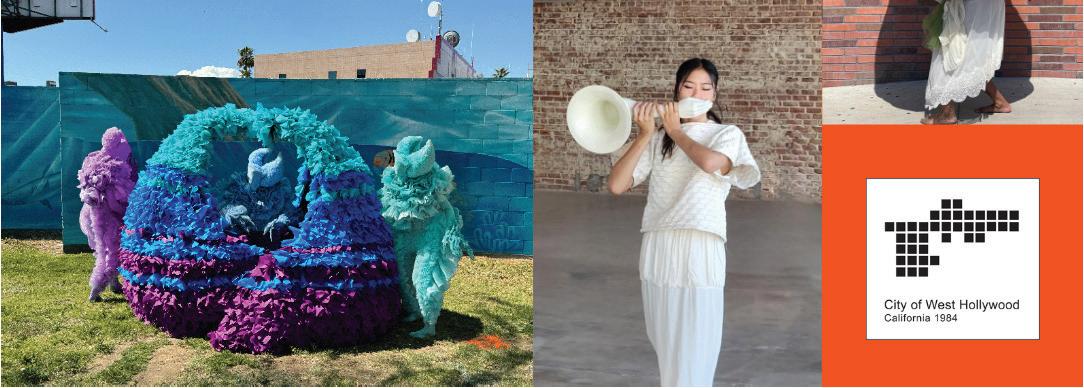
LANE IGOUDIN, Ph.D.,
is the author of A Family, Maybe, a gay father’s adoptive journey included in the Mombian Database of LGBTQ Family Books. He is a professor of English/ESL at Los Angeles City College and a past Andrew W. Mellon Fellow with UCLA Humanities.
Lane Igoudin, a gay Dad, writer, and educator, gives his perspective
The recent U.S. Supreme Court Mahmoud v. Taylor decision gives parents the green light to remove their children from the school curriculum that includes books with LGBTQ themes and characters. This court ruling is a troubling step backwards, using religion to enshrine homophobia.
First the facts. In 2022, a Maryland school district added to its elementary curriculum nine LGBTQ+-inclusive picture books like Intersection Allies by Chelsea Johnson, and Pride Puppy by Robin Stevenson, and Prince & Knight by Daniel Haack. These books, according to the district’s communications director, tell “joyful stories of folks who happen to be part of the LGBTQ+ community” and “celebrate and positively portray LGBTQ+ identities.”
The following year, facing the growing number of parents’ opt out requests, the district withdrew its opt-out waiver policy because it was causing significant disruptions to the schools’ learning environment.
Three sets of religious parents (Muslim, Catholic, and Eastern Orthodox) represented by Becket Fund for Religious Liberty, a legal group with an anti-LGBTQ history, sued the district for the right to opt out, claiming that the district infringed on their religious rights.
What religious rights one might ask? At the heart of the matter is the question whether public schools can require children to participate in instruction on gender and sexuality which contradicts their parents’ religious beliefs.
On June 27, 2025, the Supreme Court sided 6-3 with the plaintiffs, with the dissenting votes coming from Justices Jackson, Kagan, and Sotomayor.
The majority opinion cited two precedents addressing religious beliefs in public schools ( Barnette and Yoder ): in one, Jehovah’s Witness students were allowed not to salute the American flag and the other protected Amish children from educational environments hostile to their beliefs.
If the connection between those cases and inclusive picture books seems tenuous, one should simply read the 135page court ruling and be transported back in time.
“The[se] books are unmistakably normative. They are designed to present certain values and beliefs as things to be celebrated,” the decision explains. Citing, for example, the inclusive message in the books about same-sex marriage such as Uncle Bobby’s Wedding by Sarah Brannen, the court states that “many Americans advocate with utmost, sincere conviction that, by divine precepts, same-sex marriage should not be condoned” ( Mahmoud v. Taylor , p. 3).
This assumption, however, contradicts the recent, 2024 Gallup Poll which found that more than two in three Americans (69%) support same-sex marriage. Many of them believe in God. Many of them are also parents.
The court’s conservative majority finds it objectionable that these books “present the opposite viewpoint to young, impressionable children who are likely to accept without question any moral messages conveyed by their teacher’s instruction. The storybooks present same-sex weddings as occasions for great celebration and suggest that the only rubric for determining whether a marriage is acceptable is whether the individuals concerned ‘love each other’.”
The books’ inclusive, normalizing message on sex and gender is also subject to the court’s ire. “Many Americans, like the parents in this case, believe that biological sex reflects divine creation, that sex and gender are inseparable, and that children should be encouraged to accept their sex and to live accordingly. The storybooks, however, suggest that it is hurtful, and perhaps even hateful, to hold the view that gender is inextricably bound with biological sex.”
And the commentary goes on.
It is shocking that in 2025, after decades of struggle for acceptance and equality and the deep change in the cultural norms and values, such anti-LGBTQ rhetoric would still hold sway.
And it is frightening that as in decades past, the court would pit faith and parenting against the LGBTQ+ community, as if they are mutually exclusive, as if the LGBTQ community does not raise children, as if most families of faith in the society at large would want to withhold the books that accept and affirm from their children.
That simply isn’t so. Many religious denominations today support LGBTQ rights and welcome our families and our children. My husband and I, for instance, raised our two daughters in the Jewish tradition, and not once did we have to hide or change who we were.
“What can I do to bring you here?” asked me the rabbi of the local Conservative Jewish temple when we first moved into our neighborhood. That was 20 years ago, and it hasn’t changed.
We raised our kids with a deep sense of acceptance and tolerance, and much of it came from the teachings of faith. Similarly, our kids’ public schools were affirming of LGBTQ+ students. For some of these students, public school was their safe place, away from the intolerance and rejection they experienced at home. If children cannot learn about tolerance and inclusion at school, where else can they learn it?
Ultimately, it’s not about religious rights. It’s about the right to raise children in a world in which LGBTQ people do not exist. Acceptance and inclusion would contradict this homophobic worldview, and that’s what these parents – and the Supreme Court – do not want.
PHONE 310-230-5266
E-MAIL arodriguez@losangelesblade.com
INTERNET losangelesblade.com
PUBLISHED BY Los Angeles Blade, LLC
PUBLISHER
ALEXANDER RODRIGUEZ
arodriguez@losangelesblade.com, 310-230-5266 x8080
EDITORIAL
NATIONAL EDITOR
KEVIN NAFF kna @washblade.com, 202-747-2077 x8088
CONTRIBUTING WRITER
KAREN OCAMB karenocamb@losangelesblade.com
CONTRIBUTORS
MICHAEL K. LAVERS, TINASHE CHINGARANDE, CHRISTOPHER KANE, JOHN PAUL KING, LOU CHIBBARO JR., SUSAN HORNIK, JOE REBERKENNY, DANIEL ITAI, ISAAC AMEND, PETER ROSENSTEIN, TERRI SCHLICHENMEYER, JOE PHILLIPS, ANKUSH KUMAR, ESTEBAN RIOSECO, SAM KISIKA, ELVIS KAWEDO, HENRY CARNELL, DAWN ENNIS
SALES & ADMINISTRATION
SALES EXECUTIVE
SHANA WONG SOLARES swong@losangelesblade.com, 808-386-0872
MARKETING DIRECTOR
STEPHEN RUTGERS srutgers@washblade.com, 202-747-2077 x8077
NATIONAL ADVERTISING
RIVENDELL MEDIA sales@rivendellmedia.com, 212-242-6863
ADMINISTRATION
PHILLIP G. ROCKSTROH prockstroh@washblade.com, 202-747-2077 x8092
CREATIVE DESIGN/PRODUCTION
MEAGHAN JUBA production@azercreative.com DISTRIBUTION
CHRISTOPHER JACKSON, 562-826-6602
All material in the Los Angeles Blade is protected by federal copyright law and






represents the entire LGBTQ+ community, including clinicians, researchers, service providers, and advocates who serve individuals of every sexual orientation, gender, gender identity, race, ethnicity, and age, regardless of disability, income, education, and geography. The Coalition works to improve LGBTQ health and well-being through advocacy, medical and consumer education, communications, capacity building, and health services research. Learn more at healthlgbtq.org.
Pride is all about celebrating who we are as an LGBTQ+ community. As people. And part of that celebration is making sure we’re taking care of ourselves and looking out for one another. While Pride month may be over, the spirit (and summer) continues.
That’s why this is still an ideal time to talk about health. With so many people still coming together for events and festivities, it’s the perfect opportunity to bring health into the conversation—particularly how essential open communication is when it comes to addressing the current mpox situation.
But communication is a two-way street. Like community, providers need to address health issues like mpox with compassion, competence, and confidence. That means without moralizing, without stigma, and with the trust it takes for people to feel safe and supported when they go back to talk to their partners and friends. The community deserves knowledge and care that reflect our lives.

Mpox, formerly known as monkeypox, is a contagious virus that spreads through close contact, including sex. Though mpox is not a sexually transmitted infection, the patterns are clear: When bodies collide, especially in ways that involve skin-to-skin exposure, transmission can happen. Many people report their first symptoms showing up at sites of sexual contact.
Mpox cases have primarily been seen among sexual and social networks of gay,
bisexual, and same-gender-loving men, as well as transgender and nonbinary individuals—especially those with uncontrolled HIV. It has also affected caregivers and women. Because early framing of the virus relied on language and imagery that fueled stigma — particularly toward African nations and then onto LGBTQ+ people — the name change to ‘mpox’ was a deliberate step to correct any unnecessary associations. This is a public health issue that transcends identities and borders, and it deserves a response grounded in science and dignity.
Globally, the concern is growing. In the Democratic Republic of the Congo (DRC), Clade I mpox—historically more severe—has caused more than 48,000 suspected cases and more than 1,100 deaths in 2024, many among children and immunocompromised individuals. A more transmissible subvariant, Clade Ib, has been identified and is now spreading to neighboring countries like Burundi, Kenya, Rwanda, and Uganda, where mpox had not previously circulated. In response, the Africa Centres for Disease Control and Prevention has declared a “public health emergency of continental security.” When diseases like this spread unchecked, the consequences don’t stay confined. What happens globally still affects us locally.
While mpox may not be in the headlines as often as it used to be, it hasn’t gone away. In the United States (U.S.), the Centers for Disease Control (CDC) has confirmed four recent cases of Clade I mpox in individuals with travel history to Africa between late 2024 and early 2025 detected in California, Georgia, New Hampshire, and New York. At this point, there is no evidence of further spread from those cases, and Clade II remains the primary strain circulating in the U.S. However, vaccine uptake is still lagging. Most mpox infections continue to occur among people who are either unvaccinated or only partially vaccinated. For optimal protection, the CDC recommends that those at risk receive two doses of the vaccine to help protect themselves and others from mpox in the midst of a current outbreak. However, just 15 percent of those recommended to get the mpox vaccine have received both doses—leaving significant gaps in protection heading into the summer months.
Vaccination remains one of the most effective tools we have. It not only helps protect against infection, but it can also help reduce symptoms if someone does get sick. The mpox vaccine is highly effective, but it’s a two-part series, and that second dose really matters. Ideally, it’s given at least 28 days after the first—but even if more time has passed, you can always go back at any time.
There are other ways we can all unite this summer during Pride by looking out for ourselves and each other. If you or a partner has a new or unexplained rash or just aren’t feeling right, it’s OK to pause and chat with your doctor. Pay attention to symptoms like painful sores, flu-like symptoms, or discomfort when going to the bathroom. Have open conversations with your partners. If something feels off, don’t wait — reach out to a provider you trust.
So, keep celebrating while staying informed. How we talk and listen to each other, without judgment, is still one of the most powerful ways to protect our health. Happy Pride season all year ‘round!
— it’s a movement
The ‘drag queen’s drag queen’ is just getting started
By ROSE MONTOYA
Sasha Colby didn’t set out to become “your favorite drag queen’s favorite drag queen.” It just kind of happened.
“You know, I was so stoned,” she admitted with a laugh, recalling the filming of her “Meet the Queens” promo. “We were about to sit down for the interview, and they were like, ‘Oh, just think of something, like a catchphrase you want to say.’” What came out was a now-iconic phrase that captured the truth: Colby is the queen’s queen, beloved by legends, adored by fans, and deeply respected in her craft. “It came out of the deep crevices in here,” she said, pointing to her head.
She thinks RuPaul might have planted the seed: “Ru had said on the main stage once, ‘You’re a drag queen’s drag queen—you’re what drag queens watch.’ And maybe that stuck in my head and just kind of … word association.”
And she’s only getting started.
After making history as the first out trans winner of “RuPaul’s Drag Race” to headline a Live Nation tour, Colby




is hitting the road again this fall. Her “Stripped II” tour kicks off Sept. 16 in Seattle and wraps up in Hawaii, where she’ll bring her artistry full circle back home. This time, it’s bigger, bolder, and deeply personal, just like Sasha herself.
“I’m really excited to be going back on the road,” she told the Blade. “We’re doing a lot more cities. I think we did 23 last year, and this year we’re doing 30.” But the expansion isn’t just about scale, it’s about purpose. “The last tour was more about my journey to ‘Drag Race.’ This one’s about having fun, having some escapism, and magic. That’s so desperately needed in the world right now.”
The show is shaped by themes of resilience, joy, and gender freedom. It’s not just entertainment, it’s a protest in lipstick and lace.
“For me, doing drag is a protest,” Sasha said. “The most accessible way I can create change is through art and storytelling.” That means celebrating her Native Hawaiian heritage, honoring trans and queer ancestors, and centering the experiences mainstream media still too often ignores. “I love talking about how Native Hawaiians used to live and how they revered and had a space for trans people, for nonbinary people,” she said. “Those two things— the cultural and the queer—they overlap a lot. That’s my safe space to create from.”





That’s my safe space to create from.” to pride, positivity, us comfortable
The show will include Easter eggs for fans, references to cultural pride, sex and body positivity, and, of course, a healthy dose of gender fuckery.
“Just really bending the mind,” she said, “and hopefully allowing us to get more comfortable with what we see as sexy or queer — or even straight, you know?”

It’s no surprise that Sasha’s rise to icon status has made her a beacon of trans joy and resilience. But she’s honest about the weight of that visibility.
“I actually try not to think about being someone everyone looks up to,” she confessed. “I’m definitely far from a perfect example of always having my shit together.” What grounds her, though, is openness.
“I think that’s the real point of strength in vulnerability—being OK to show yourself, flaws and all.”
It’s a reminder that be-
hind every perfectly executed performance is a full human being with trauma, imposter syndrome, and insecurities, just like the rest of us. And yet, she shows up anyway. “It comes and goes. It comes in waves. Work in progress.”
Digital spaces, she says, have been crucial for building community when in-person organizing isn’t always possible. “Sometimes when we can’t be there in person, all we have is community online.” But that connection comes with responsibility. “What we post matters. A lot of people look to us as their news source. So I try to be mindful of that.”
Her activism, like her art, feels instinctive. “I think maybe just my upbringing—being Native Hawaiian, living with injustice on an occupied island nation—I’ve always just been interested in speaking truth,” she said. “I’m trying to do this mantra where I don’t have to be right, I just have to be happy. Unfortunately, being right makes me happy.”
Same, Sasha. Same.
Her connection to her roots runs deep: not just culturally, but queerly. “Being queer, being trans got me connected with my Hawaiian side,” she explained. “There’s a long history of trans hula dancers and singers. They were the ones who taught me about Miss Continental, the Glades, the Carousel — all these places I was drawn to as a performer.”
One concept she carries with her is the Hawaiian idea that kana (your purpose in life) is tied to kulana (your responsibility to community). “Once you know your purpose, then that’s easy to understand your part in your community — whether it be your trans community, local community, or global community.”
As for the future? “Sky’s the limit,” she said, beaming. “I see myself telling stories in different ways—drag, film, music, stage. I just love telling stories.” And she hopes that trans and queer people everywhere keep doing the same. “Keep on existing, because it’s making everybody so upset. It’s wild—but we’re not going to stop.”
Before we wrapped, I asked Sasha what she would say to her younger self—before the wigs, before the titles, before she became everyone’s favorite drag queen’s favorite drag queen. “Oh, baby girl,” she said tenderly, “even though it feels like you’re trapped in your body, in your house, in your family—just stick with it. You’re one stubborn little gal. And don’t forget, you’ve always taken care of yourself. You got you.”
And what is she most proud of? It’s not the crown, or the titles, or the sold-out shows. “I’m proud that after working as a gig worker, living off tips for 30 years, I can finally pay my bills on autopay,” she said. “It’s an amazing thing for trans women of color to be able to do that. So, thank you, drag.”
Yes. Thank you, drag. And thank you, Sasha Colby, for reminding us that joy is revolutionary, art is healing, and we shouldn’t just “protect the dolls,” we should also pay the dolls.




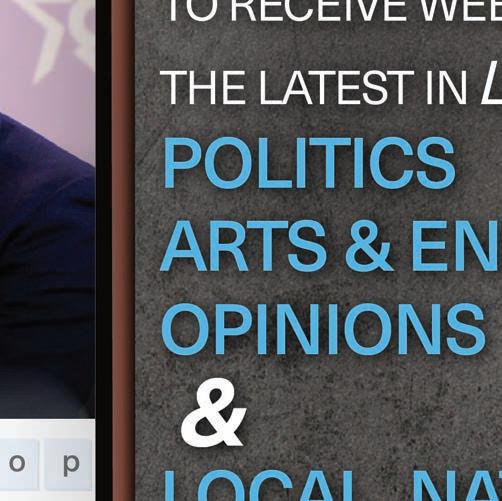


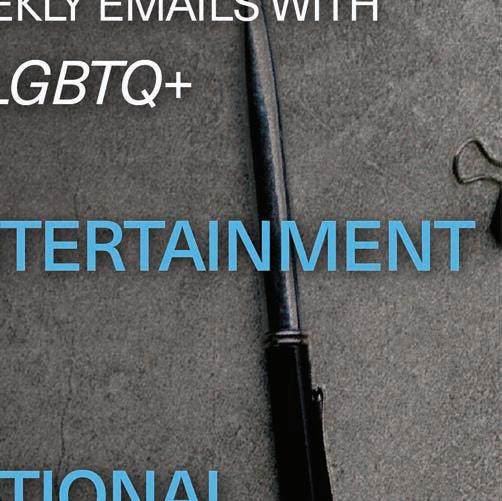

The 2025 Primetime Emmy nominations were announced, and a few of this year’s key frontrunners have particularly resonated with the LGBTQ+ community during a politically turbulent year.
Coming off Season 3’s win for outstanding comedy series, Hacks Season 4 was nominated for 14 awards, with Jean Smart, Hannah Einbinder, Julianne Nicholson, and Robby Hoffman being recognized for their performances. Since the show premiered in 2021, each season has explored the comedy and entertainment industry through the lens of generational differences between queer writer Ava (Einbinder) and the old-school Deborah (Smart).
By MATT MINTON
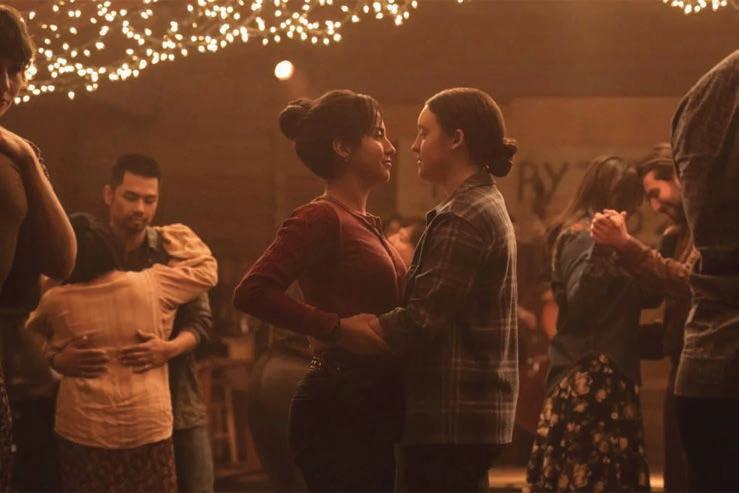
While Smart has won outstanding lead actress in a comedy series for all three seasons, this year could be the chance for Einbinder, who identifies as bisexual, to finally take home a prize of her own in supporting actress. And if Season 4 nabs the outstanding comedy series crown yet again, it’ll be another huge moment for bisexual representation. But it will have to fend off the industry satire The Studio, which received a staggering 23 nominations for its breakout first season.
Another one of this year’s most high-profile contenders, The Last of Us, received 16 nominations for its second season, including non-binary actor Bella Ramsey, lead actor Pedro Pascal, and supporting/guest actors Kaitlyn Dever, Jeffrey Wright, Joe Pantoliano, and Catherine O’Hara.
Notably, though, Season 2 has been hit by much more backlash, much of which has been fueled by homophobic anger at the love story between Ellie (Ramsey) and Dina (Is-
abela Merced). Merced, who identifies as queer, was widely praised for her turn as Dina, but was not nominated for supporting actress. And while Season 1 received 24 nominations, Season 2 lost out on a few, bringing The Last of Us down a notch in its overall standing.
There were other snubs as well. Mid-Century Modern, the gay sitcom starring Nathan Lane, Matt Bomer, Nathan Lee Graham, and Linda Lavin, did not see any of its actors nominated. It also missed out on the Best Comedy Series category, for which it was considered a contender, although it did still receive four below-the-line nominations.
However, other openly queer actors were nominated, even for roles or shows not explicitly exploring queer issues or characters. Those include Colman Domingo for The Four Seasons, Cynthia Erivo for Poker Face, Michael Urie for Shrinking, Cooper Koch for Monsters: The Lyle & Erik Menendez Story, and Bowen Yang for Saturday Night Live
Of course, it wouldn’t be the Emmys without RuPaul, who became the most-nominated reality host in Emmys history after landing his 10th nomination for RuPaul’s Drag Race He’s also nominated alongside Alan Cumming of The Traitors fame. And in the Outstanding Documentary or Nonfiction special category, the critically acclaimed Will & Harper and Peewee as Himself were nominated, and are both considered strong contenders to win.
TV fans can find out which of their favorite queer actors or shows take home top prizes on Sunday, Sept. 14, with Nate Bargatze hosting the 77th annual awards at the Peacock Theater in Los Angeles.


By JOHN PAUL KING
As the recent conservative blowback over “Superman” has clearly illustrated, many American moviegoers like to complain that movies have become too political.
The arguments vary; some claim that an overemphasis on social issues has made going to the movies feel like attending a lecture, or that cultural agendas have infiltrated a popular art form that is “supposed” to provide escapist entertainment. Others see it as a deliberate effort to “brainwash” audiences into acceptance of certain political ideals, depending on which side of the fence they may be on.
If you can relate, we understand your feelings, and we sympathize – but, and we hate to break this to you, every movie is inherently political.
For a film to avoid politics is, in itself, a political choice; no matter the intention of the people behind it, every film that is now or ever has been made will always have a political aspect, and to deny that it is there is to be ignorant of the very power that makes cinema perhaps the most influential art form ever created for mainstream consumption – though it’s fair to say that some movies wield it with a more scrupulous sense of neutrality than others.
Such a movie is Ari Aster’s new neo-Western “Eddington,” which opened in wide release on July 18 after a (mostly) critically acclaimed debut at Cannes in May. Top-heavy with an A-list cast of principals and seemingly timed by fate to emerge in the midst of our nation’s most critical test of sanity to date, it’s the kind of microcosmic allegory that translates sweeping and near-abstract principles of political partisanship into the interpersonal dynamics of its characters, while also taking pains to invest us in their intimate concerns – something that always, inevitably, drives our actions around any given issue that affects us personally.
Set in the early days of the COVID pandemic, it centers on Joe Cross (Joaquin Phoenix), the sheriff of the small (and fictional) New Mexico town of its title. An old-school lawman who sees himself as a protector of decency and freedom, he finds himself at odds with the new mask mandate from the town’s progressive mayor, Ted Garcia (Pedro Pascal) – perhaps more aggressively so due to the latter’s alleged former history with his own wife, Lou (Emma Stone), a “mentally unstable” victim of trauma sparked by sexual abuse as a teen. Leveraging his popularity with the townspeople, he decides to run against Garcia in the town’s upcoming mayoral election; but what begins as a straightforward competition centered around “common sense” arguments about public safety versus freedom of choice soon turns to wider conflict when national protest over the death of George Floyd spreads into the streets of Eddington.
Chafed by accusations of racism within his own police force – despite the inclusion of Black officer Michael Cole (Micheal Ward), whose father was Cross’s own predecessor as sheriff –and suspicious of Garcia’s involvement with a shadowy corporate backer whose effort to build a mysterious AI-training plant in the town has become a divisive issue among the town’s citizens, the sheriff tries to diffuse the tension with a level-headed “business as usual” approach which prioritizes the public peace over the ethical concerns of the town’s newly-”woke” youth population; meanwhile, his marriage is starting to unravel as Lou – coaxed by a youthful online guru (Austin Butler) and in defiance of her conspiracy-theorist mother (Diedre O’Connell) – becomes more determined to break free from the accepted story of her past, throwing his personal rivalry with Garcia into an uncomfortably uncertain new light. Faced with the prospect of a humiliating loss and the disintegration of his “happy” home, he decides to take a more aggressive approach to his campaign, sparking a chain of shocking and violent developments that rapidly turn both his town and his life into a powderkeg, as his efforts to avoid its consequences become ever more desperate and irrational.
With a stellar cast of better-and-lesser-known talents performing at their best, and the picturesque New Mexico location lending a distinctly surreal air of grandeur, it’s a deliberate thrill ride of a movie, grounded in the contrast between everyday banality and the raging turmoil of inner life; it hinges on false narratives, whether taught us by others or conjured by ourselves, and the dangers, both personal and public, of embracing them; and though it sometimes feels over-long and occasionally relies on contrivances that feel too convenient to be believed, its writer/director crafts it with enough clarity of vision – not to mention self-assurance – to make it all work.
Aster – whose two breakthrough films (“Hereditary” and “Midsommar”) turned him into

one of Hollywood’s “young directors to watch” toward the end of the last decade – rose to A-lister prominence as a maker of “elevated” horror, and while “Eddington” furthers the departure that began with his last movie (the acclaimed-but-little-seen “Beau is Afraid,” also starring Phoenix), it is nevertheless driven with the kind of mounting slow-burn suspense – as well as the devious twists, turns, and sudden shocks – that draws a clear lineage from the genre which inspired him to become a filmmaker in the first place. Perhaps unsurprisingly, these tactics serve him well, ramping up the underlying tension until viewers are mentally begging for it to explode; and, truth be told, it might easily be argued – from a certain point of view, at least –that “Eddington,” despite its self-identification as a “satirical black comedy” and a narrative that reads more like an action-driven crime thriller than a movie about arcane evil or otherworldly threats, is very much its own kind of horror film, depicting a real-life terror that feels particularly ominous in the “cultural moment” we currently live in.
Swirling with the absurdities of American public opinion, pointedly and painfully magnified by its small town setting, Aster’s ambitious opus hinges on all the paradoxical logic of our time; from the murky behind-the-scenes manipulations of big-money tech interests and the insecurity of white male “incels,” to the paranoid and half-baked misinformation of online influencers and the blatantly self-serving lies of our public officials, “Eddington” makes sure to touch on all the existential crises which haunt our collective lives in the here and now and undermine our understanding of “truth” itself. Yes, it draws ludicrous caricatures of current events, and it roots itself in a filmmaking trope (think “The Godfather”) that symbolically links American identity with a tendency toward the violence, corruption, and amorality of criminal behavior, with side servings of toxic masculinity and colonialism; but just because it plays those things for laughs (albeit mostly the wry, inner variety) doesn’t mean they aren’t terrifyingly relevant to our real world existence.
Indeed, in the end, Aster’s movie is chillingly unsettling, leading us through a labyrinth of cause-and-effect inevitabilities and delivering us, finally, to a place that feels both disconcertingly unresolved and alarmingly familiar; to say more would be a spoiler, but we’ll venture to add that, whichever side of the political fence you’re on, it’s a film that will challenge your thinking and disrupt your comfort.
In 2025, what better recommendation could we give for a film than that?
Jean Smart honored with Icon Award
By JOHN PAUL KING
Sure, we know everybody’s talking about the Emmy nominations right now, but they aren’t the only TV awards in town.
On July 8, GALECA: The Society of LGBTQ Entertainment Critics announced the winners of its 17th Dorian TV Awards.
With more than 560 critics, journalists, and media icons making up its membership, GALECA is the second largest entertainment journalists’ group in the world, and they present their Dorian Awards – named in honor of Oscar Wilde, the celebrated queer writer who penned “The Picture of Dorian Gray” and who serves as something like the group’s patron saint – to honor the best in film, television, and theater at separate times during each year. Frequently, many Dorian nominees and winners presage similar honors from the more mainstream awards bodies, reminding the world that the informed LGBTQ perspective on all things entertainment definitely matters; at the same time, however, the Dorians also include several queer-centric categories that are unique to them, providing an opportunity to amplify the reach of more unsung and off-the-radar material which might otherwise be overlooked.
For this year’s TV awards – which, as always, honor both mainstream and queer-focused content across broadcast, cable, and streaming platforms – streaming giant Max scored big. Their new, genre-expanding hit “The Pitt” was awarded Best TV Drama, with veteran star Noah Wyle earning Best Leading TV Performance (Drama) for his role on the show. A parallel double victory was bestowed in the comedy categories, where Max triumphed once more with “Hacks” winning both Best TV Comedy and Best Lead Performance (Comedy) for star Jean Smart (both winning for the third year in a row), and her co-star, Hannah Einbinder, took the Best Supporting TV Performance (Comedy) win for a second time. “Hacks” also scored wins as Best LGBTQ TV Show and Best-Written TV Show (Comedy). Smart also added an additional accolade to her ever-growing tally, winning GALECA’s TV Icon Award, an annual career achievement honor previously bestowed on the likes of Jennifer Coolidge, Christine Baranski and Carol Burnett. Other special accolades: nonbinary multi-hyphenate Cole Escola (creator-star of the outlandish Broadway smash “Oh, Mary!”) earned GALECA’s “Wilde Wit” Award, following in the footsteps of such past winners as Julio Torres, Wanda Sykes, Bowen Yang and John Oliver; and Ncuti Gatwa – the Rwandan-born Scottish actor who is the first
Black and out queer performer to portray the title character in BBC’s long-running sci-fi hit “Doctor Who” – was named as LGBTQIA+ TV Trailblazer.

Other noteworthy wins: “Andor,” the boldly queer-inclusive (and anti-fascist) Disney Plus “Star Wars” spin-off about the rise of the galactic resistance against an authoritarian empire, was named as Best Genre TV Show; “Overcompensating,” the sexy-but-sweet collegiate comedy from viral internet star Benito Skinner and Amazon Prime Video, took the prize for Best Unsung TV Show; Peacock’s Alan Cumming-hosted “The Traitors” won double honors as both Best Reality Show and “Campiest” TV Show (the Dorians’ cheekiest prize); the HBO two-parter “Pee-wee as Himself” defeated all competitors to win as both Best TV Documentary and Best LGBTQ TV Documentary; and “Wicked” fans will be glad to hear that the movie’s stars Ariana Grande and Cynthia Erivo (the group’s LGBTQIA+ Film Trailblazer honoree earlier this year) came in on top of the TV Musical Performance category, beating out a highly competitive field that included Beyoncé and Kendrick Lamar, to win with a medley of tunes from “The Wizard of Oz” and its various descendents on ABC’s broadcast of the 97th Academy Awards.
“This year’s Dorian TV winners prove once again that queer folks have an especially keen eye for stellar TV, using our culture’s lens to elevate the bold, brilliant, and blissfully bonkers,” said Diane Anderson-Minshall, GALECA’s Executive Director. “From Hacks’ dazzling domination to Ncuti Gatwa’s historic trailblazing, we’re proud to celebrate a wildly entertaining spectrum of talent and storytelling.”
Added GALECA’s President, Walt Hickey, “The Dorian Awards this year illustrate more than anything the depth and quality of TV right now, especially when it comes to shows by and for LGBTQ+ people. This year’s crop
of winners made us laugh, inspired us, and delivered some of the most intense and rewarding performances many of our members have ever seen.”
GALECA: The Society of LGBTQ Entertainment Critics and its Dorian Awards honor the best in film, television, and theater at separate times of the year. With over 560 members, GALECA. A nonprofit organization, GALECA also advocates for better pay, access, and respect for entertainment journalists (especially those most underrepresented), providing scholarships for LGBTQ journalism students and more.
2025 DORIAN TV AWARD WINNERS, FULL LIST
BEST TV DRAMA
Andor (Disney+)
The Last of Us (HBO)
The Pitt (Max)
Severance (Apple TV+)
The White Lotus (HBO)
BEST TV COMEDY
Abbott Elementary (ABC)
Hacks (Max)
The Rehearsal (HBO)
Somebody Somewhere (HBO)
The Studio (Apple TV+)
BEST LGBTQ TV SHOW
Agatha All Along (Disney+)
Hacks (Max)
Heartstopper (Netflix)
Overcompensating (Amazon Prime Video)
Somebody Somewhere (HBO)
Rebel Ridge (Netflix)
BEST WRITTEN TV SHOW
Andor (Disney+)
Hacks (Max)
The Pitt (Max)
Severance (Apple TV+)
The White Lotus (HBO)
BEST UNSUNG TV SHOW
English Teacher (FX on Hulu)
Evil (Paramount+)
Fantasmas (HBO)
Mid-Century Modern (Hulu)
Overcompensating (Amazon Prime Video)
BEST NON-ENGLISH LANGUAGE
TV SHOW
Elite (Netflix)
My Brilliant Friend (HBO)
One Hundred Years of Solitude (Netflix)
Pachinko (Apple TV+)
Squid Game (Netflix)
Threesome (ViaPlay)
BEST LGBTQ NON-ENGLISH LANGUAGE TV SHOW
Becoming Karl Lagerfeld (Hulu)
The Boyfriend (Netflix) Elite (Netflix)
The Secret of the River (Netflix) Threesome (Viaplay)
When No One Sees Us (Max)
BEST TV PERFORMANCE – DRAMA
Colin Farrell, The Penguin (HBO)
Stephen Graham, Adolescence (Netflix)
Cooper Koch, Monsters: The Lyle and Erik Menendez Story (Netflix)
Diego Luna, Andor (Disney+)
Cristin Milioti, The Penguin (HBO)
Pedro Pascal, The Last of Us (HBO)
Bella Ramsey, The Last of Us (HBO)
Adam Scott, Severance (Apple TV+)
Michelle Williams, Dying for Sex (FX on Hulu)
Noah Wyle, The Pitt (Max)
BEST SUPPORTING TV PERFORMANCE— DRAMA
Carrie Coon, The White Lotus (HBO)
Owen Cooper, Adolescence (Netflix)
Taylor Dearden, The Pitt (Max) Erin Doherty, Adolescence (Netflix) Walton Goggins, The White Lotus (HBO) Katherine LaNasa, The Pitt (Max)
Genevieve O’Reilly, Andor (Disney+)
Parker Posey, The White Lotus (HBO)
Jenny Slate, Dying for Sex (FX on Hulu)
Tramell Tillman, Severance (Apple TV+)
BEST TV PERFORMANCE—COMEDY
Uzo Aduba, The Residence (Netflix)
Quinta Brunson, Abbott Elementary (ABC)
Ayo Edebiri, The Bear (FX on Hulu)
Bridget Everett, Somebody Somewhere (HBO)
Nathan Fielder, The Rehearsal (HBO)
Kathryn Hahn, Agatha All Along (Disney+)
Natasha Lyonne, Poker Face (Peacock)
Seth Rogen, The Studio (Apple TV+)
Benito Skinner, Overcompensating (Amazon Prime Video)
Jean Smart, Hacks (Max)



